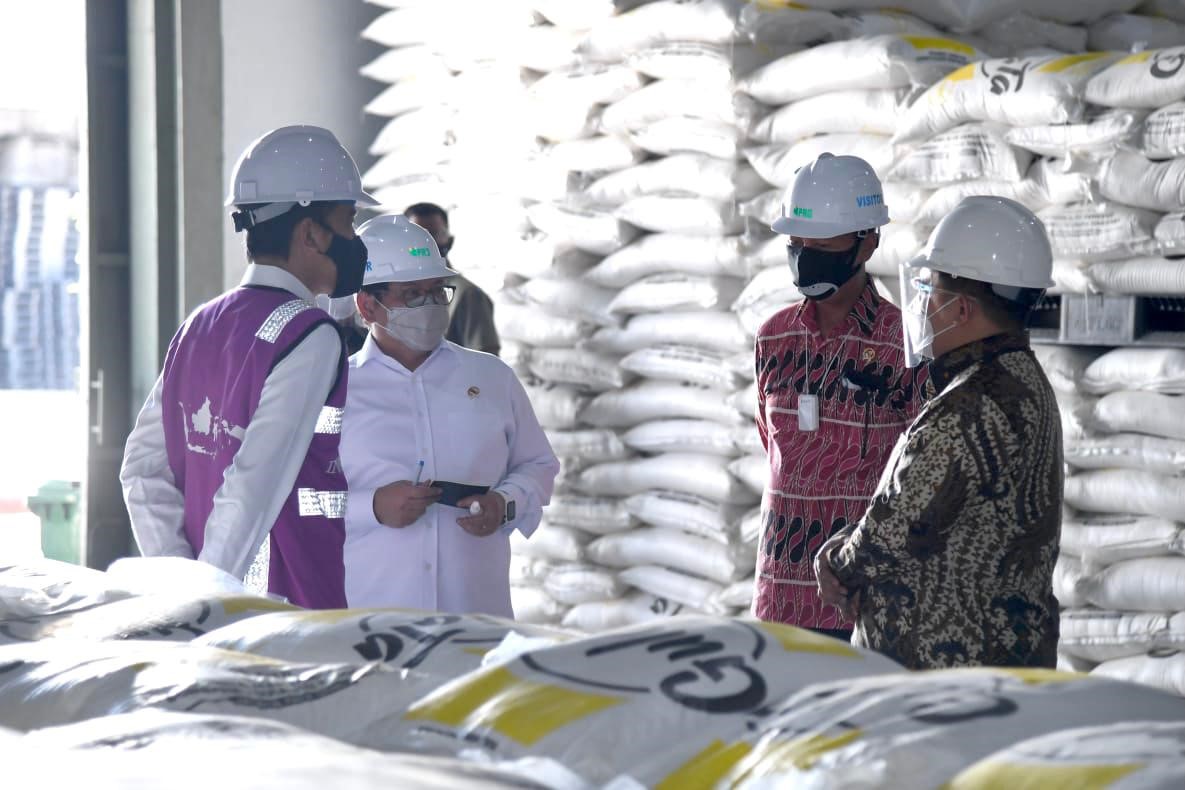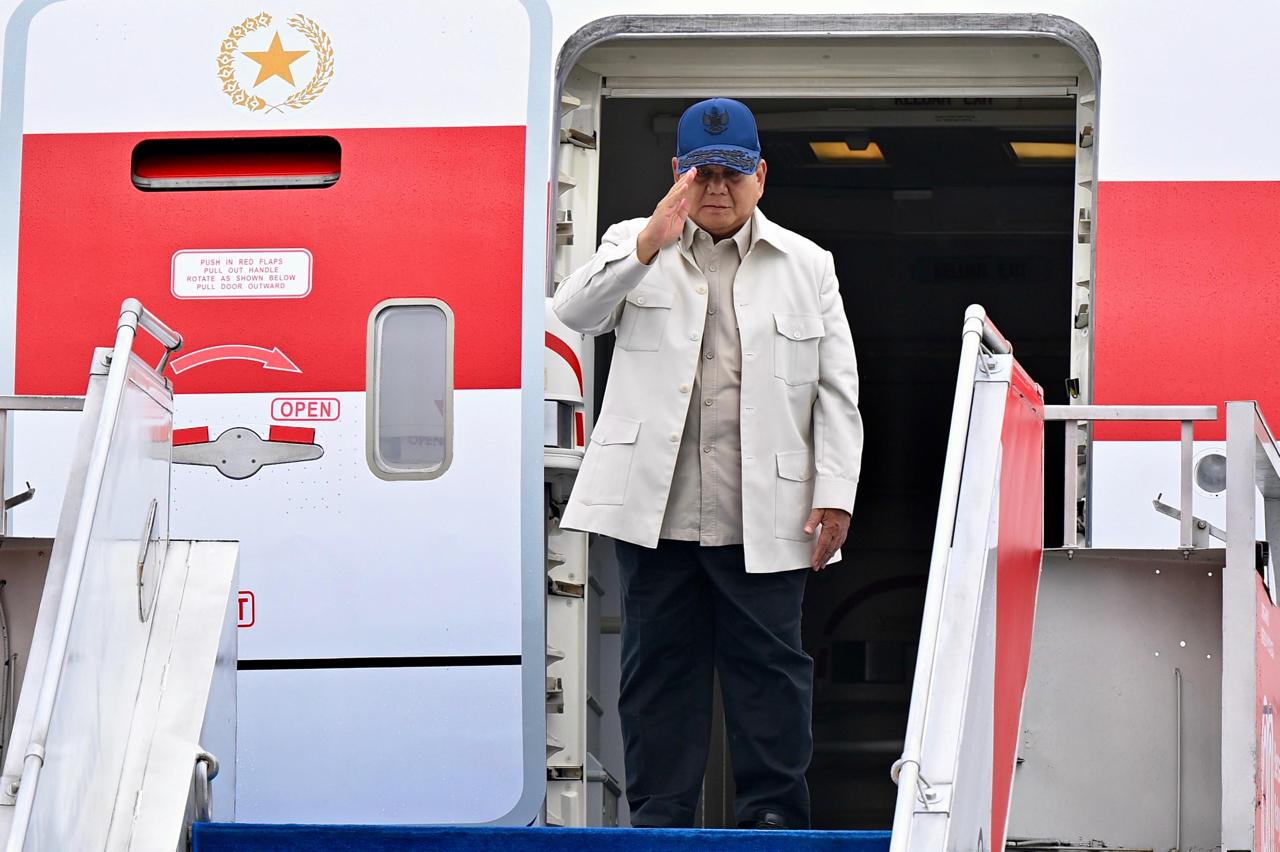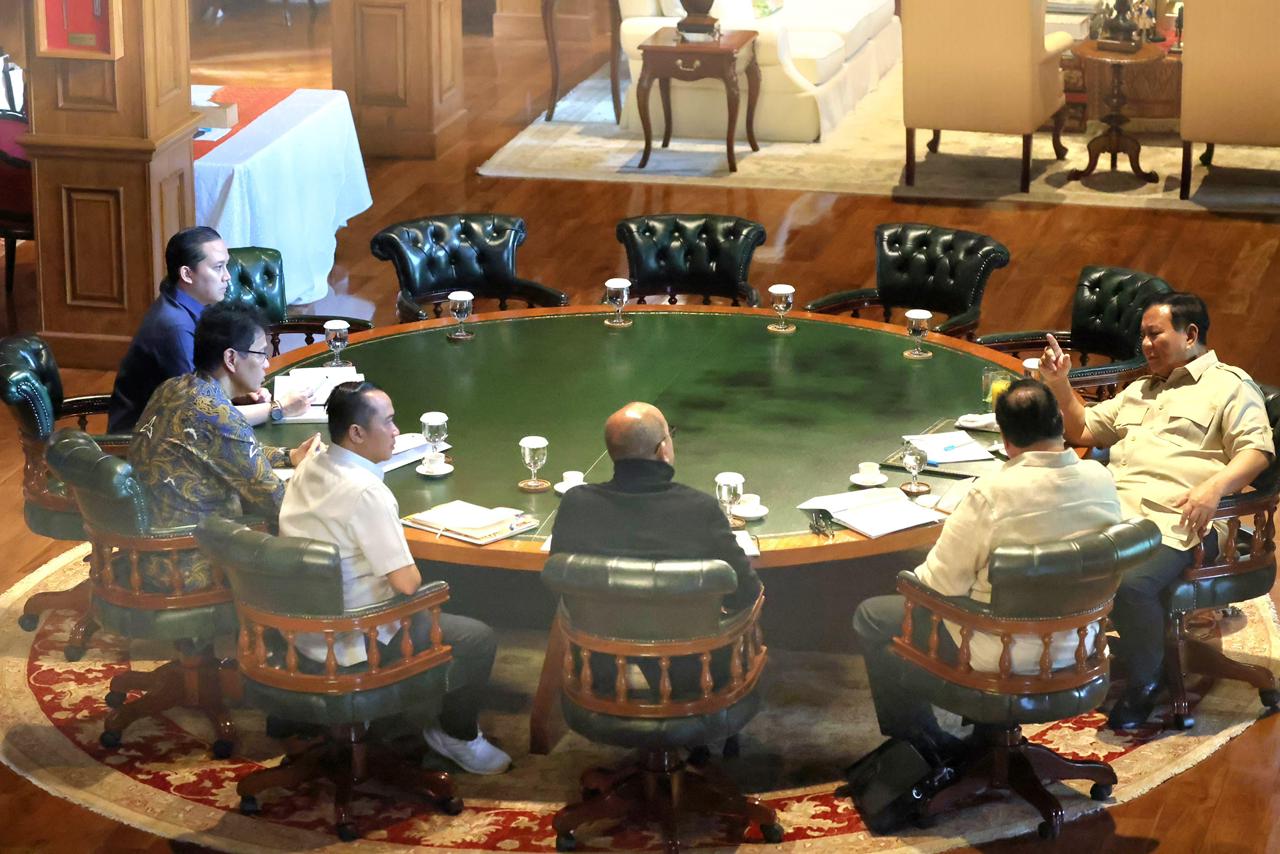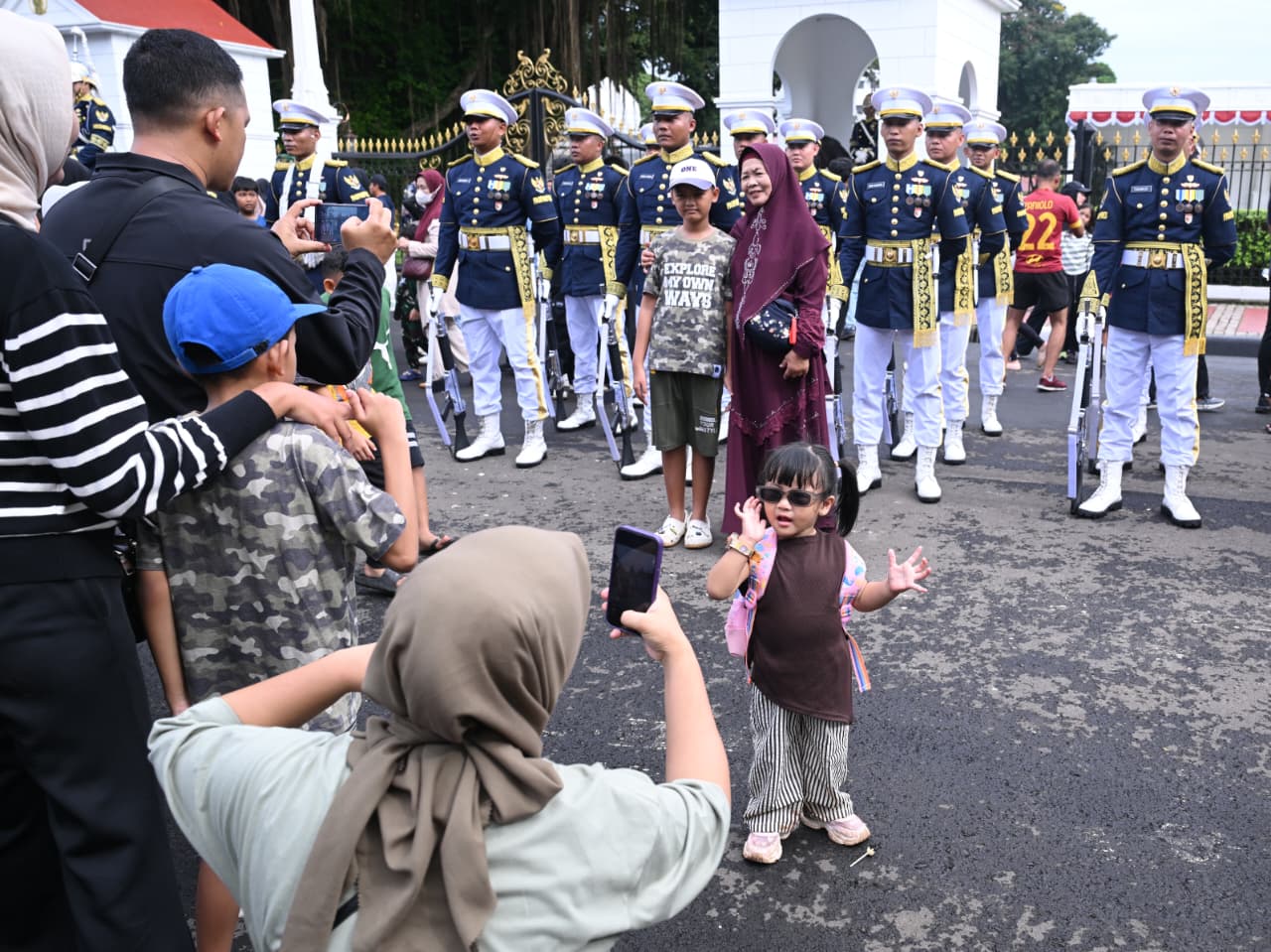Gov’t Continues to Strengthen Downstream Industries

President Joko Widodo, accompanied by Cabinet Secretary Pramono Anung and Minister of Industry Agus Gumiwang, visits the sugar factory in Bombana, Southeast Sulawesi, Thursday (22/10). Photo by: BPMI
In the first year of President Joko ”Jokowi” Widodo and Vice President Ma’ruf Amin administration, various strategic policies, including strengthening downstream industries, have been made to develop a more self-sufficient and competitive industrial sector.
In addition, in the last year’s inauguration speech, the President stated five priority programs, namely development of human resources, development of infrastructure, simplification of regulations, simplification of the bureaucracy, and transformation of the economy from natural resources into industries with added value.
Following up the President’s directive, Ministry of Industry has taken several measures to implement the priority programs, including strengthening downstream industries, vocational education and training, and small and medium industries.
Minister of Industry Agus Gumiwang Kartasasmita, in his written statement on Monday (26/10) said that Ministry of Industry has renewed its commitment to support the downstream industries so that they continue to run well, because the downstream industries give a broad impact on the national economy, including on foreign exchange earnings from exports, and on employment.
“We are committed to optimizing the added value of domestic raw materials, so that they can be used as much as possible in Indonesia and can benefit the people,” the Minister said, adding that the downstream industries are important in maintaining the strength of the national economy amid fluctuations in commodity prices.
Agus added that the downstreaming needs to be supported by the use of new technology to boost productivity. “We share the same views about the importance of innovation. The downstream strengthening in Indonesia must be supported. This is one of the main programs of the Government,” he stated.
The downstream industries have been running in various sectors, including mining and plantations. In the Morowali Industrial Estate, Central Sulawesi, the successful downstreaming has been achieved in producing stainless steel from nickel ore. The Morowali Industrial Estate has recorded the total investment of more than US$5 billion and provided the employment for more than 30,000 workers.
Another leap of progress in the implementation of industrial downstreaming is the increase in export of processed palm oil, which is dominated by downstream products, in the last five years. The ratio of the export volume of raw materials and downstream products is now 19 percent to 81 percent.
In addition to downstreaming, the Ministry also focuses on supporting the development of competent industrial human resources, since human resources are an important factor in improving productivity and competitiveness in the industrial sector.
A number of programs have been implemented by Ministry of Industry, including industrial vocational education program that provide “link and match” between Vocational High Schools (SMK) and industry, the 3 in 1 education system and training programs (training, certification, and job placement), development of dual system education in Ministry of Industry’s education units, development of polytechnic or community academies in industrial areas, as well as development of Human Resources for industry 4.0.
Ministry of Industry is also taking measures to develop small and medium industries to maintain the productivity amid the COVID-19 pandemic, he added.
“We continue to support our small and medium industries to adapt to the new normal during the current pandemic. They need to be supported to improve productivity, innovation, and creativity so that their businesses can continue to run by complying with health protocols,” the Minister said. (PR of Ministry of Industry/UN)
Translated by: Ridwan Ibadurrohman
Reviewed by: Muhardi








